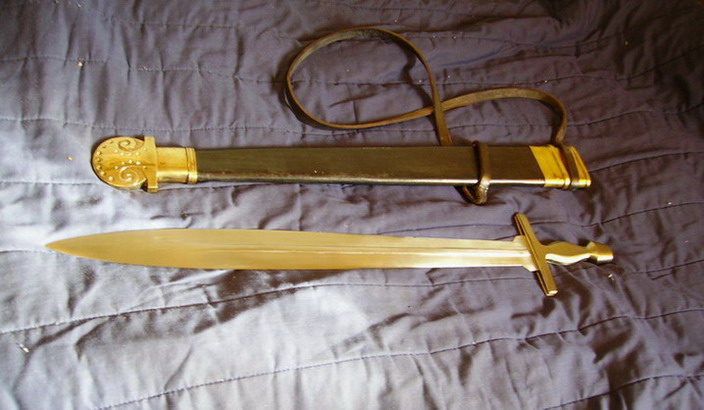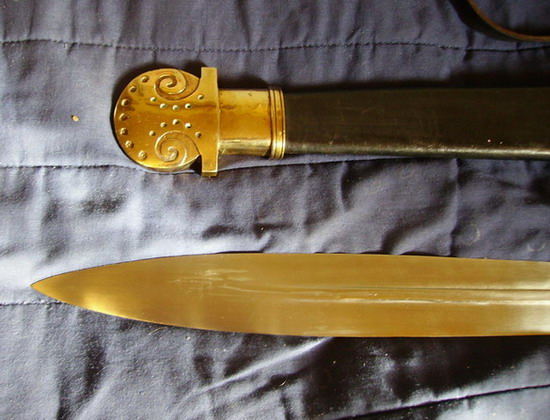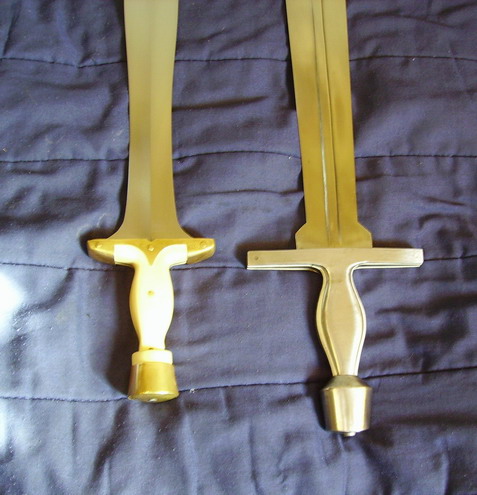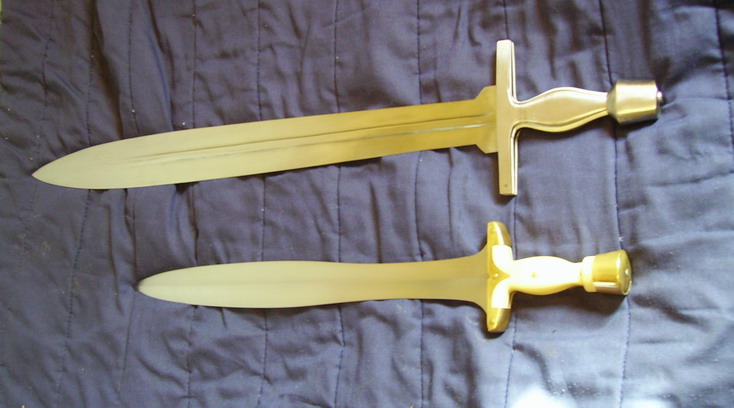There has been some interest expressed, here and on other fora, in Manning Imperial's Hoplite Xiphos. But, for some reason, no one has ever done a review on one. Either no one owns one, or no one is willing to admit to it (if not, why not? It's a perfectly decent sword! But more on this below). And so I, ever so willing to sacrifice for the sword-buying public, went ahead and bit the bullet, purchasing one of Manning's 24-inch xiphoi. Just so I could let potential buyers know all about it. That's my story and I'm sticking to it.
The Manning Imperial hoplite sword is based on the sword found at Campovalano in Italy. That sword is dated to the 6th or 5th century BC and is in pretty great shape. Now, how closely the Manning sword comes to the original, I have no idea; please bear that in mind. Now, with that said, I've read that the Campovalano sword has a 25-inch blade. The Manning sword is advertised with a 24-inch blade; Well, guess what? Mine has a 25-inch blade. The Campovalano sword has a central ridge running about halfway down the blade; The Manning's central ridge is a bit longer than that, at a bit over 3/4 of the blade length.
My first thoughts, upon first view of the sword, were about how massive this sword is. It is large, for a short sword. The leafy blade, at it's widest, is about 2.5 inches wide. It weighs in at about 2 lbs 9.5 ounces, which is on the heavy side for a sword of this size, but it's really not too bad all things considered. CoG/PoB is just a bit over 4 inches. The sword handles fairly dynamically and really comes alive in the swing -- it is definitely a hacking/slashing sword. I can imagine this sword being used in the hoplite warfare of Classical Greece, whether against other City-States or Persian invaders, being a great secondary weapon in combo with a dory and aspis.
The blade also seems to be well-tempered. Although fairly stiff, due to the central ridge, I was able to flex it a bit out of true. The blade popped right back, no problem (how much and to what degree I flexed it, I couldn't measure).
The hilt is assembled correctly, with a full-profile tang and "sandwiched" construction, with a layer of bone covered with sheets of iron, all riveted. The rivets are flush with the surface and it's hard to tell they are there unless you look for them. The grip is very comfortable, whether using a hammer or handshake grip ( the latter of which has become my preference as late when using open-hilted single hand swords). The scabbard is fairly attractive and well-made, but pretty heavy due to the large cast-bronze chape.
So, overall, what do I think of it? I like it. It's historically accurate (afaik) and it handles quite well. If you're looking for a 6th-5th century BC Greek Hoplite-style sword, here it is. Other than going full-on custom, there's nothing else like it on the market.



[ Download ]
